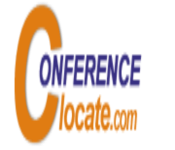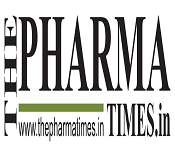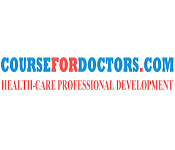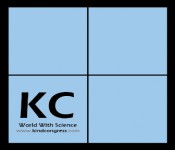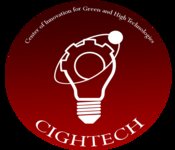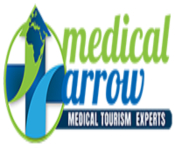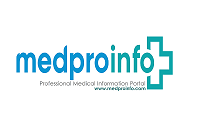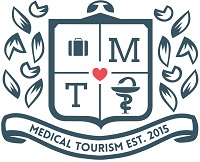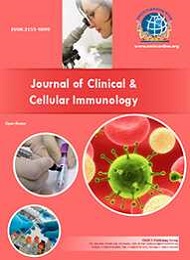Theme: Next Generation Vaccine; Research, Development and Challenges
Immune Response 2019
- About Conference
- Sessions of Vaccines & Immunology Conference
- Market Analysis Immune Response 2019
- International Immunology Conference: News & Recent Updates
It is our immense pleasure to welcomes every one of the members over the globe to participate in the International Conference on Vaccines and Immune Response during November 14-15, 2019 in Istanbul, Turkey and highlights the theme "Next Generation Vaccine; Research, Development and Challenges" which includes various research findings about vaccines and Immunology.
Immune Response 2019 Conference brings together immunologists, scientists, public health professional, vaccine researchers and other key stakeholders to discuss progress and challenges in Immunology and vaccines research and development and implementation as identified in the universal vaccines accomplishment. The aim of the conference is to provide an international platform for discussion and debate among Immunology and vaccines research and development providers, policy makers, academics and researchers on strategies and initiatives to achieve transformational and sustainable development in Immunology and vaccines research and development in local and global contexts.
On behalf of Immune Response 2019, we invite you to take this opportunity to join us for academic exchange and visit the city of Istanbul, Turkey.
Why to attend?
Immune Response 2019 is aimed to give an opportunity that with scholars from around the globe focused on learning about Vaccines & Immunology and its advances, Development and Challenges; this is the best opportunity to reach the largest assemblage of contributors from the Vaccines & Immunology community. Lead overviews, circulate data, meet with existing and potential researchers, make a sprinkle with new vaccinations and immunizations improvements, and get name acknowledgement at this occasion. Widely acclaimed speakers, the latest systems, improvements, and the most up to date refreshes in Vaccinology/ Immunology are signs of this gathering. World-renowned speakers, the best current researches, developments, challenges and the newest updates in Vaccines & Immunology are hallmarks of this conference.
Target audience:
- Researchers & Scientists related to Vaccine R&D
- Directors, CEOs, Presidents and Vice Presidents
- Deans and Professors
- Vaccinology/Immunology University Faculty
- Associations and Societies related to Vaccine R&D
- Medical Schools/Colleges
- Nursing Schools/Colleges
- Vaccination Programme Organising Government and Non-government Organisations
- Business Entrepreneurs
- Data Management Companies
- Medical Devices Manufacturing Companies
- Vaccine Manufacturing Companies
- Vaccine Developers and Investigators
- Machinery Manufacturing Companies.
Conference Highlights:
- Immunology, Allergy, Asthma and Autism
- Vaccines
- Immunotoxicology
- Immunopathology
- Immunological Disorders
- Vaccine Immunology or Immunotherapy and Epidemiology
- Infectious and Non-infectious diseases
- Types of Vaccines
- Clinical and Cellular Immunology
- Molecular Immunology, Stem Cell Immunogenicity or Immuno-Genomics
- Paediatric Vaccination and Child Immunization
- Human Vaccines
- Cancer and Tumour Immunology
- Computational Immunology
- Immunodermatology
- Microbiology and Microbial Immunology
- Reproductive Immunology
- Animal and Plant-Derived Vaccines
- Veterinary Vaccines or Medicines
- Nutritional Immunology
- Virology and Viral Immunology
- Neuroimmunology
- Mucosal Immunology
- Vaccine Safety & Efficacy
- Current Research, Development, and Future Challenges in Vaccines
Track 1: Immunology, Allergy, Asthma and Autism
Immunology is a part of biomedical science that covers the investigation of all parts of the resistant framework in all living beings physiological working of the safe framework in conditions of both wellbeing and maladies; glitches of the invulnerable framework in immunological clutters (autoimmune diseases, hypersensitivities, immune deficiency, transplant dismissal); the physical, concoction and physiological attributes of the segments of the safe framework in vitro, in situ and in vivo.
Track 2: Vaccines
Nowadays vaccination is a very important part of public health and family. Vaccination is the essential part in our life for keeping us healthy and keeps us safe. Vaccines prevent the spread of chronic, contagious, deadly and dangerous diseases. It helps us to fight against many chronic and contagious diseases like polio, mumps, HIV, HPV, smallpox, cancer, Influenza, etc. The eradication of smallpox is exactly achieved by the vaccine discovery. A vaccine contains disease-causing microorganisms like viruses and bacteria. Those agents are present in the vaccine when vaccinated stimulate the immune system and it gets recognized and the infection eliminates by the body’s immune system. But vaccines remain elusive for the treatment of many important diseases like HIV, Ebola, Malaria, Herpes etc. This Conference brings out the knowledge about the recent research, development and future aspects of Vaccines.
Track 3: Immunotoxicology
Immunotoxicology is the investigation of immune dysfunction coming about because of presentation of a living being to a xenobiotic. The resistant brokenness may appear as immunosuppression or on the other hand, hypersensitivity, autoimmunity or any number of fiery based maladies or pathologies. Since the invulnerable framework assumes a basic job in host protection from illness just as in ordinary homeostasis of a living being, Identification of immunotoxic hazard is high in the assurance of human, creature and untamed life wellbeing.
Track 4: Immunopathology
Immunopathology is a part of prescription that bargains with Immune response related with ailment. It incorporates the investigation of the pathology of a creature, organ framework, or illness regarding the safe framework, resistance, and insusceptible reactions. In science, it alludes to harm caused to a living being by its very own immune response, because of contamination. It could be because of mismatch among pathogen and host species, and frequently happens when a creature pathogen taints a human (for example avian influenza prompts a cytokine storm which adds to the expanded death rate. Immunopathology may be caused by antibodies, an excessive innate response, or lymphocytes.
Track 5: Immunological Disorders
Immunological disorders are diseases or conditions caused by a dysfunction of the immune system and include allergy, asthma, autoimmune diseases, autoinflammatory syndromes, and immunological deficiency syndromes. These disorders can be characterized in several different ways: By the component(s) of the immune system affected, by whether the immune system is overactive or underactive, by whether the condition is congenital or acquired.
Track 6: Vaccine Immunology or Immunotherapy and Epidemiology
Patients with safe mediated incendiary ailments (for example, IBD, RA or psoriasis, are at increased risk of contamination, in part in light of the malady itself, however for the most part in light of treatment with immunomodulatory or immunosuppressive medications. Regardless of their raised hazard for vaccination preventable disease, immunization scope in IMID patients is shockingly low.
Track 7: Infectious and Non-infectious diseases
Historically, Infectious diseases were the main cause of death in the world and, indeed, in some developing regions this may still be the case. With the development of antibiotics and vaccination programs, infectious disease is no longer the leading cause of death in the western world. Non-infectious disease is now responsible for the leading causes of death in both developed and some developing countries.
Track 8: Types of Vaccines
The Vaccines type includes Inactivated Vaccines, Recombinant Vaccines, Live Attenuated Vaccines, Toxoid vaccines, Subunit Vaccines, and Conjugate Vaccines. Within all these vaccines, the Attenuated Vaccines were first developed against the viruses. The first Vaccine developed using live attenuated virus and that was Rabies Vaccine. Generally Inactivated Viruses contained killed microorganisms. U.S Childhood Immunization, they recently recommended the Live, Attenuated Vaccines for MMR vaccine. The recombinant vaccine is produced by utilizing the gene segment from the protein of a disease-causing organism.
Track 9: Clinical and Cellular Immunology
Clinical immunology is the investigation of infections caused by disarranges of the resistant framework (disappointment, distorted activity, and dangerous development of the cell components of the framework). It likewise includes maladies of different frameworks, where immune reactions have an impact in the pathology and clinical highlights.
Cellular immunology deals with activities of cells in experimental or clinical situations. It is the interactions among cells and molecules of the immune system that contribute to the recognition and elimination of pathogens.
Track 10: Molecular Immunology, Stem Cell Immunogenicity or Immuno-Genomics
Molecular immunology is a branch of immunology that concentrates to diagnose and analyse immune system and its processes at a molecular level. It is a molecular analysis of the cellular components and processes which underlie the physiological behavior of cells involved in immune phenomena.
Track 11: Paediatric Vaccination and Child Immunization
Vaccines help protect infants, children, and teens from serious diseases. Getting childhood vaccines means your child can develop immunity (protection) against diseases before they come into contact with them. Young children are at increased risk for infectious diseases because their immune systems have not yet built up the necessary defences to fight serious infections and diseases. As a result, diseases like whooping cough or pneumococcal disease can be very serious and even deadly for infants and young children. Vaccinations start early in life to protect children before they are exposed to these diseases. Measles can spread to the cerebrum, cause mental harm and demise. Mumps can cause lasting deafness. Polio can cause loss of motion.
Track 12: Human Vaccines
A vaccine is an inactivated form of bacteria/ virus or killed microorganisms that is injected into the body to simulate an actual infection. Because the injected microorganisms are 'killed or dead,' they don't cause a person to become sick. Instead of vaccines stimulate also an immune response by the body that will fight off that type of disease. It covers non-infectious disease targets and infectious disease targets. The process for the Vaccine-mediated protection is a complex challenge. Presently available vaccines have largely been settled empirically, with little or no understanding on how they activate the immune system. Their initial protective efficacy is mainly conferred by the induction of antigen-specific antibodies. However, there is more to antibody-mediated protection than the highest of immunization-induced antibody titers.
Track 13: Cancer and Tumour Immunology
Cancer immunology is an interdisciplinary part of science that is concerned about understanding the role of the safe framework in the movement and advancement of disease; the most notable application is cancer immunotherapy, which uses the insusceptible framework as a treatment for malignancy. Cancer immunosurveillance and immunoediting depend on security against the advancement of tumours in animal systems and identification of focuses for invulnerable acknowledgment of human cancer growth. Tumour immunology describes the interaction between cells of the immune system with tumour cells. Understanding these interactions is important for the development of new therapies for cancer treatment.
Track 14: Computational Immunology
Computational immunology is a field of science that includes high-throughput genomic and bioinformatics ways to deal with immunology. The field's fundamental point is to change over immunological information into computational issues, take care of these issues utilizing scientific and computational methodologies and after that convert these outcomes into immunologically significant translations. The application of the Computational Immunology are Infectious diseases and host responses, Immune system function, Cancer Informatics.
Track 15: Immunodermatology
Immunodermatology considers skin as an organ of invulnerability in wellbeing and infection. A few regions have exceptional consideration, for example, photograph immunology (impacts of UV light on skin safeguard), incendiary sicknesses, for example, Hidradenitis suppurativa, allergic contact dermatitis and atopic eczema, presumably autoimmune skin diseases such as vitiligo and psoriasis, and finally the immunology of microbial skin diseases such as retrovirus infections and leprosy. New treatments being developed for the immunomodulation of regular immunological skin illnesses incorporate biologicals went for killing TNF-alfa and chemokine receptor inhibitors.
Track 16: Microbiology and Microbial Immunology
Microbial immunology is the examination of the sub-nuclear frameworks utilized by microorganisms to accomplish infirmity in people and creatures. Bacterial, protozoan, parasitic and viral pathogens have built up a wide assortment of devices to create themselves in the host and get supplements, which in addition cause impedance and disease. To comprehend the stunning structures utilized by microbial pathogens, microbiologists and immunologists utilize every single one of the contraptions of present-day sub-atomic science, acquired attributes, ruinous tendency parts, quiet organized endeavours, normal science, and biophysics. Seeing how microorganisms cause disease is as often as possible the basic push toward the difference in new antibodies and therapeutics and its cover all parts of the interrelationship between incredible specialists and their hosts.
Track 17: Reproductive Immunology
Reproductive immunology alludes to a field of prescription that reviews cooperation’s (or the nonappearance of them) between the safe framework and segments identified with the regenerative framework, for example, maternal insusceptible resilience towards the baby, or immunological associations over the blood-testis hindrance. The idea has been utilized by ripeness facilities to clarify the richness issues, intermittent unnatural birth cycles and pregnancy inconveniences saw when this condition of immunological resistance isn't effectively accomplished. Immunological treatment is the new best in class strategy for treating numerous instances of beforehand "unexplained barrenness" or intermittent unsuccessful labor.
Track 18: Animal and Plant-Derived Vaccines
Plant-based immunizations are recombinant protein subunit vaccines. Ideally, the choice of plant species used to create the chosen antigen should allow for oral medication in the form of an edible vaccine. To date, the most developed human vaccine projects have effectively completed phase I clinical trials, and animal vaccine projects have specified promising data in early phase trials targeting specific animal species.
Track 19: Veterinary Vaccines or Medicines
Veterinary immunization have had, and continue having, a critical part in guaranteeing animal fortune and general affluence, diminishing animal persisting, permitting capable era of food animals to support the healthy human and hugely diminishing the prerequisite for hostile to microbial to treat nourishment and amigo animals. Rabies antibodies for domestic unit animals and untamed life have about abstained from human rabies in made countries. The infectious diseases that get transmitted to humans from animals can be prevented. Major role in preventing animal diseases includes reducing the animal suffering, enabling efficient food production, to greatly produce antibodies for animals to prevent it from any kind of diseases.
Track 20: Nutritional Immunology
Nutrition is critical to immune defence and resistance to pathogens, with consequences that affect the health, welfare, and reproductive success of individual organisms and also has profound ecological and evolutionary implications. In humans, under-nutrition, notably of protein, is a major contributor to morbidity and mortality due to infectious diseases, particularly in the developing world. Likewise, over-nutrition and its associated metabolic disorders may impair immune function, disrupt the relationship with symbiotic and commensal microbiota, and increase susceptibility to infectious disease.
Track 21: Virology and Viral Immunology
Viral immunology is the study of viral infections and immune responses towards viral infections which can cause deleterious effect on the functions of the cells. It includes both DNA and RNA viral infections. Viruses are emphatically immunogenic and initiates 2 sorts of immune reactions; humoral and cellular. The collection of specificities of T and B cells are framed by revisions and substantial changes. T and B cells don't for the most part perceive similar epitopes present on a similar infection. B cells see the free unaltered proteins in their local 3-D adaptation while T cells more often than not observe the Ag in a denatured frame related to MHC particles. The qualities of the safe response to a similar infection may contrast in various people contingent upon their hereditary constitutions.
Track 22: Neuroimmunology
Neuroimmunology is a field joining neuroscience, the investigation of the sensory system, and immunology, the investigation of the immune system. Neuroimmunologists look to more readily comprehend the connections of these two complex frameworks amid improvement, homeostasis, and reaction to wounds. A long haul objective of this quickly creating examination zone is to additionally build up our comprehension of the pathology of certain neurological sicknesses, some of which have no reasonable etiology. In doing as such, neuroimmunology adds to advancement of new pharmacological medications for a few neurological conditions. Numerous kinds of cooperations include both the apprehensive and invulnerable frameworks including the physiological working of the two frameworks in wellbeing and sickness, glitch of either or potentially the two frameworks that prompts issue, and the physical, compound, and ecological stressors that influence the two frameworks every day.
Track 23: Mucosal Immunology
Mucosal immunology is the investigation of insusceptible framework reactions that happen at mucosal layers of the digestive organs, the urogenital tract and the respiratory framework, i.e., surfaces that are in contact with the outer condition. In sound expresses, the mucosal invulnerable framework gives security against pathogens yet keeps up resilience towards non-destructive commensal microorganisms and favourable ecological substances. For instance, in the oral and gut mucosa, the discharge of IgA gives a safe reaction to potential antigens in nourishment without an expansive and superfluous foundational safe reaction. Since the mucosal films are the essential contact point between a host and its condition, a lot of auxiliary lymphoid tissue is found here. The mucosa-related lymphoid tissue, or MALT, gives the living being a vital first line of barrier. Alongside the spleen and lymph hubs, the tonsils and MALT are additionally viewed as optional lymphoid tissue. The mucosal invulnerable framework gives three primary capacities: filling in as the body's first line safeguard from antigens and disease, anticipating fundamental safe reactions to commensal microscopic organisms and sustenance antigens (principally nourishment proteins in the Gut-related lymphoid tissue, supposed oral resilience), and controlling proper resistant reactions to pathogens experienced once a day.
Track 24: Vaccine Safety & Efficacy
Vaccines are the best protection we have against preventable, serious and sometimes deadly contagious diseases. Vaccines are some of the safest medicinal products available, but like any other medicinal product, there may be health risk. Accurate information about the value of vaccines as well as their probable side-effects helps people to make informed decisions about vaccination.
Track 25: Current Research, Development and Future Challenges in Vaccines
Antibody advancement stays testing in view of the very modern avoidance components of pathogens for which immunizations are not yet accessible. Ongoing years have seen both victories and disappointments of novel antibody structure and the quality of iterative methodologies is progressively valued. These join revelation of novel antigens, adjuvants and vectors in the preclinical stage with computational investigations of clinical information to quicken antibody structure. Switch and basic vaccinology have uncovered novel antigen applicants and atomic immunology has prompted the plan of promising adjuvants. Quality articulation profiles and invulnerable parameters in patients, antibodies and solid controls have shaped the reason for bio-marks that will give rules to future immunization structure.
Related Associations:
USA:
- American Academy of Allergy, Asthma and Immunology (AAAAI)
- American Association of Immunologists (AAI)
- American Board of Allergy and Immunology (ABAI)
- American College of Allergy, Asthma & Immunology (ACAAI)
- The Anti-Vaccination Society of America
- National Institute of Allergy & Infectious Diseases (NIAID)
- The Edward Jenner Vaccine Society
- Asociacion de Alergia, Asma e Inmunologia "Buenos Aires" (AAIBA)
- Cuban Society for Immunology
- Association of Universities and Colleges of Canada (AUCC)
- Canadian Society of Allergy and Clinical Immunology (CSACI)
- Canadian Society for Immunology (CSI)
Europe:
- Association des Enseignants d'Immunologie des Universités de Langue Française (ASSIM)
- Öesterreichische Gesellschaft fur Allergologie und Immunologie (ÖGAI)
- British Society for Allergy and Clinical Immunology (BSACI)
- Hitchhikers Club (the Clinical Immunology Trainees of the United Kingdom)
- British Society for Immunology
- Deutsche Gesellschaft für Allergologie und klinische Immunologie (DGAKI)
- German Society for Immunology
- Finnish Society for Immunology
- Turku Immunology Centre (TIC)
- Macedonian Society for Basic, Clinical Immunology & Allergology (MSBCIA)
- European Academy of Allergology and Clinical Immunology (EAACI)
- European Federation of Immunological Societies (EFIS)
- European Society for Analytical Cellular Pathology (ESACP)
- Norwegian Society for Immunology (NSI)
- Russian Society for Immunology (RSI)
- Società Italiana di Allergologia ed Immunologia Clinica (SIAIC)
- Sociedad Española de Alergologia e Inmunologia Clinica (SEAIC)
- Sociedad Portuguesa de Alergologia e Imunologia Cliniaca (SPAIC)
- Société Française d’Immunologie (SFI)
- Société Française d’Allergologie et d’Immunologie Clinique (SFAIC)
Asia:
- Indian Immunology Society
- Japanese Society for Immunology (JSI)
- Korean Society for Immunology
- The Korean Society of Allergology
International:
- Association of Medical Laboratory Immunologists (AMLI)
- Clinical Immunology Society (CIS)
- Clinical Ligand Assay Society (CLAS)
- Federation Of Clinical Immunology Societies (FOCIS)
- International Cytokine Society (ICS)
- International Immunomics Society (IIMMS) {e-mail Prof. Vladimir Brusic}
- International Society for Analytical Cytology (ISAC)
- International Society for Developmental and Comparative Immunology (ISDCI)
- International Society for Interferon and Cytokine Research (ISICR)www.isicr.org
- International Society of Exercise and Immunolgy (ISEI)
- International Union of Immunological Societies (IUIS)
- Joint Council of Allergy, Asthma, and Immunology (JCAAI)
- Metchnikoff Club
- Society for Leukocyte Biology (SLB)
- Society for Immunology and Immunopathology (SIIP)
- Society for Mucosal Immunology
- Latin American Association of Immunology (ALAI)
Relevant Conferences
- Fuelling the immune response: UK immunometabolism meeting 2019, March 14-15, 2019, Newcastle, UK
- 13th World Immune Regulation Meeting, April 06-09, 2019, Davos, Switzerland
- 103rd Annual meeting of the American Association of immunologists (Immunology 2019) May 09-13, 2019, San Diego, USA
- 5th Conference of Translational Medicine on the Pathogenesis and Therapy of Immune-Mediated Diseases May 16-18, 2019, Milan, Italy
- Canadian Cancer Immunotherapy Consortium Annual Meeting 2019, September 18-20, 2019, Toronto, Canada
- 2nd International Conference on Dermatology and Allergic Diseases, June 10-11, 2019 Helsinki, Finland
- 11th Global Summit on Immunology and Cell Biology, July 29-30, 2019 Sydney, Australia
- 12th Annual Congress on Immunology & Immunogenetics, October 21-22, 2019 Rome, Italy
- World Conference on Vaccine and Immunology, November 21-22, 2019 Dubai, UAE
- 14th International Conference on Allergy and Clinical Immunology, November 21-22, 2019, Bali, Indonesia
Vaccines Conferences advisory board invites all the participants across the world to attend “International Conference on Vaccine and Immune Response” going to be held during November 14-15, 2019 in Istanbul, Turkey. The Theme of the conference is "Next Generation Vaccine; Research, Development and Challenges" will explore the advances in Vaccines and Immune Response.
This conference could be an unique event that brings along a International and novel mixture of huge and medium cognizance on vaccines and immune response, leading universities engendering the conference an ideal platform to apportion expertise, foster collaborations across trade and globe, and assess elevating technologies across the world.
Vaccination is a key to abolish the diseases. It is the subject for the researchers, scientists, professionals who looks beyond the clinical prospects. Traditional approaches to vaccine design were to inactivate the human pathogen or an equivalent animal homologue, Vaccinology can define as, the science of vaccine research, development and how the immune system responds to vaccines, as well as includes continuous evaluation of immunization programs and vaccine safety and efficacy, and observation epidemiology of vaccine-preventable diseases. This chapter provides a brief overview of some of the main concepts of Vaccinology and immunology as they relate to vaccination. Vaccine and Immune Response 2019 amasses all the extroverts under one roof of current advances.
Scope and Importance:
The rising pervasiveness of a few diseases and the rise of a few new illnesses are relied upon to empower the main players in the market for the advancement of novel and successful antibodies and medications. This is anticipated to upgrade the development of the worldwide vaccinations showcase in the following couple of years.
As indicated by the statistical surveying study that has been as of late distributed by Transparency Market Research, global revenue for vaccine technologies was nearly $31.8 billion in 2011. This market is expected to increase from $33.6 billion in 2012 to $43.4 billion in 2017 at a compound annual growth rate (CAGR) of 5.3%.
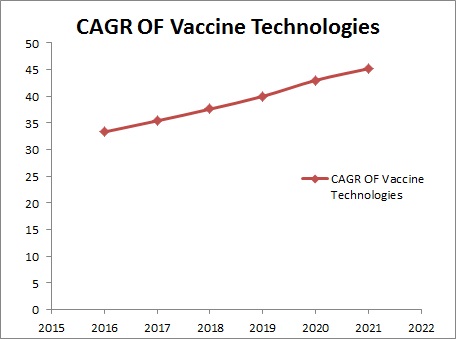
Why in Istanbul:
Istanbul is one of the largest city in Turkey and it is formally known as Byzantium and Constantinople. Istanbul is the transcontinental city in Eurasia (meeting point of Europe and Asia). Its population is about 15 million makes Istanbul the largest city in Turkey, and the fifth largest in the world. This city assaults the senses, provides endless opportunities for fun, exploration and entertainment, and has an infectious vibe. This theme targets inspiring Dubai to manufactures industries for medicines such as antibiotics, cardiovascular, painkillers, food supplements, vitamins and anti-allergic formulations and others Environment. Dubai investment in Global pharma was well organized, as they profited on the rapid growth in the pharmaceutical sector in the region. In addition, the theme features the significance of a varied set of value-added commercial actions that would improve Dubai’s economic flexibility and allow it to ingest internal and external impacts.
Conference Highlights
- Immunology, Allergy, Asthma and Autism
- Vaccines
- Immunotoxicology
- Immunopathology
- Immunological Disorders
- Vaccine Immunology or Immunotherapy and Epidemiology
- Infectious and Non-infectious diseases
- Types of Vaccines
- Clinical and Cellular Immunology
- Molecular Immunology, Stem Cell Immunogenicity or Immuno-Genomics
- Paediatric Vaccination and Child Immunization
- Human Vaccines
- Cancer and Tumour Immunology
- Computational Immunology
- Immunodermatology
- Microbiology and Microbial Immunology
- Reproductive Immunology
- Animal and Plant-Derived Vaccines
- Veterinary Vaccines or Medicines
- Nutritional Immunology
- Virology and Viral Immunology
- Neuroimmunology
- Mucosal Immunology
- Vaccine Safety & Efficacy
- Current Research, Development and Future Challenges in Vaccines
To share your views and research, please click here to register for the Conference.
To Collaborate Scientific Professionals around the World
| Conference Date | November 14-15, 2019 | ||
| Sponsors & Exhibitors |
|
||
| Speaker Opportunity Closed | |||
| Poster Opportunity Closed | Click Here to View | ||
Useful Links
Special Issues
All accepted abstracts will be published in respective Our International Journals.
Abstracts will be provided with Digital Object Identifier by




